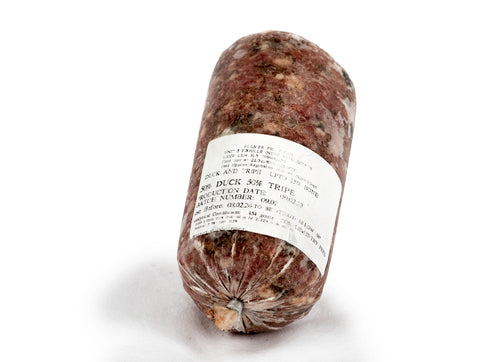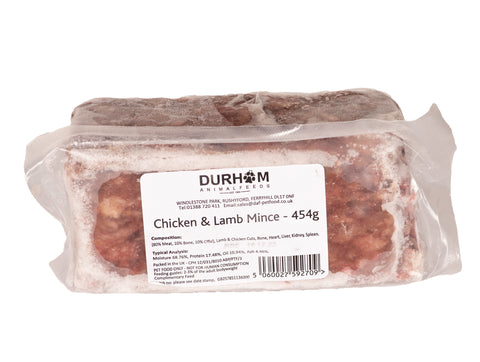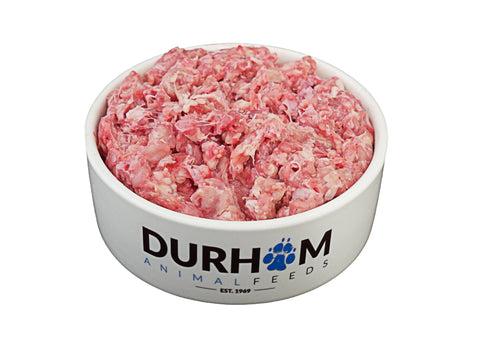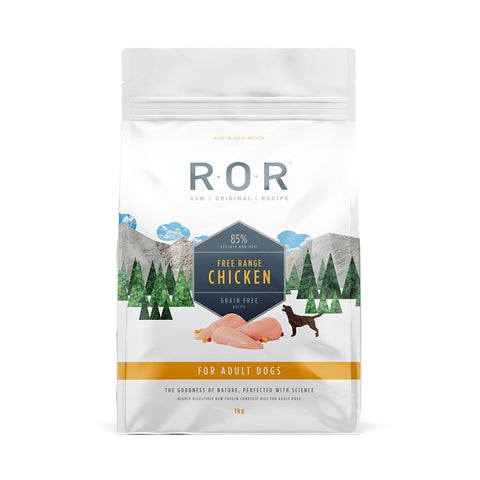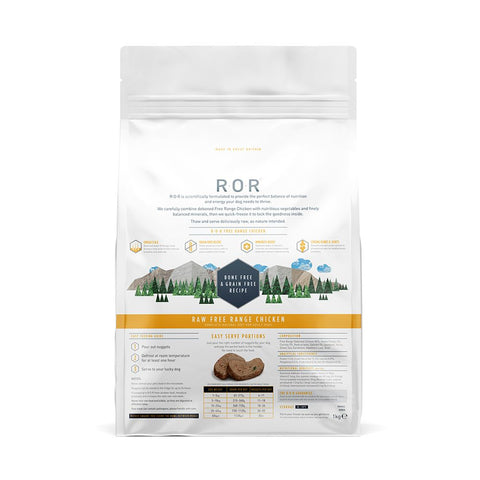Guide To Caring For Guinea Pigs
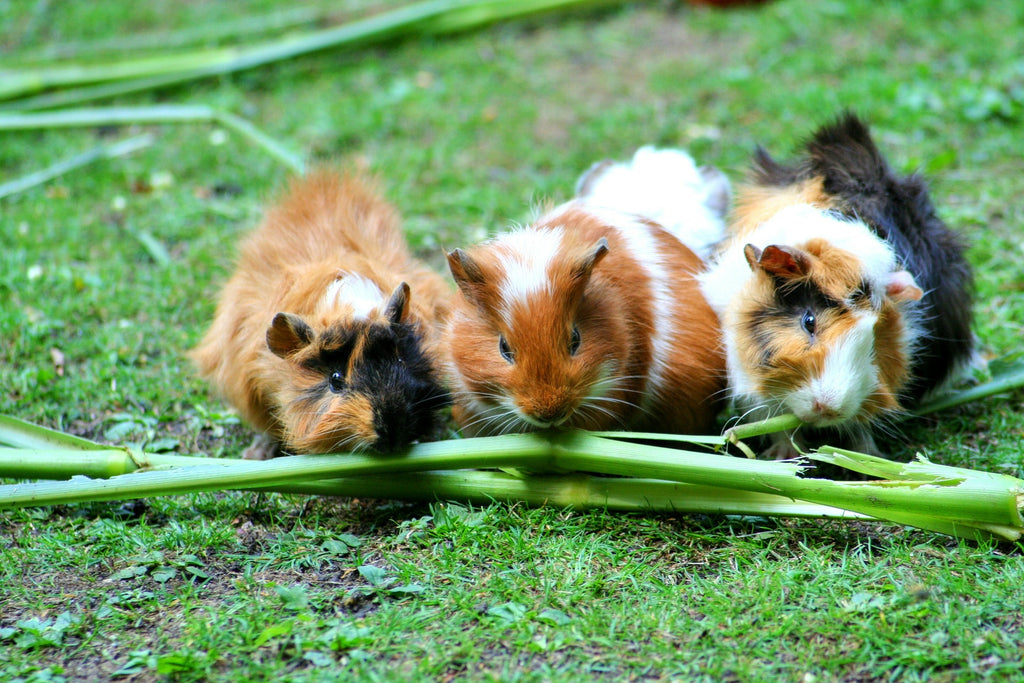
Guinea pigs are social animals and should not be kept on their own. It is recommended to keep guinea pigs in pairs or small groups of the same sex. Guinea pigs originate from Peru where they roam the countryside in family groups, usually comprised of one male with a group of females and their young. Pet guinea pigs can be kept indoors or in an outside hutch. Although they are naturally nervous creatures, they soon become used to gentle handling.
GENERAL CARE
Grooming your guinea pigs helps to keep them healthy while also allows you to bond with your pet. How you groom your pet will depend on whether your guinea pig is short or long-haired. A longhaired guinea pig will need grooming with suitable coat care equipment, which your pet shop will be able to advise on. Short-haired guinea pigs will also benefit from regular brushing.
Your guinea pigs' nails will require regular clipping, which you will need special small animal nail clippers for. Your pet shop or vet will be able to advise or do this for you if you do not feel comfortable.
Guinea pigs are prey animals so they hide their symptoms as much as possible when ill, if you are concerned about your guinea pigsí health or behaviour, contact your vet as soon as possible.
CHOOSING YOUR GUINEA PIG
There are three basic types of guinea gig – smooth-haired, coated and long-haired. The smooth-haired types include Selfs and Marked and Ticked, the coated types include Abyssinians, Rex’s, Teddies, Crested and long-haired types include Peruvians, Alpacas, and Shelties.
Whichever type you choose, your guinea pigs should be at least six weeks old when you buy them.
A healthy guinea pig should be:
Bright and alert
Have no signs of discharge from eye, ears, mouth, and nose
Have a clean anal area
Have a glossy coat with no bald patches and not have sores on the skin
Should move around the cage easily
Should feel well covered and not bony
HOUSING
Guinea pigs should be provided with as large a cage as possible. A hutch for outdoors should be sturdy and water-proof. It should be raised off the floor by about 25 cm and placed in a sheltered position or inside a shed. Guinea pigs must be protected from inclement weather as well as strong sunlight. A hutch cover, blanket or piece of old carpet will often offer added protection on cold nights. If you decide to keep your guinea pigs indoors, then a cage similar, but much larger than those used for hamsters, is suitable. These should be placed in a cool room out of direct sunlight and draughts. All guinea pigs benefit from access to a covered pen or run in the garden. Avoid using pesticides nearby and ensure that the enclosure is secure enough to keep the guinea pig in as well as other animals out. An outdoor run should be moved regularly to allow for a fresh supply of grass.
A hutch or cage should have a layer of shavings on the floor with plenty of hay for bedding. Hay can also be provided to eat from a hay rack if available. You should also provide wooden toys, tubes, plastic bell balls and huts in their cage to break boredom.
Hygiene is extremely important, especially in the summer. If not kept clean the hutch or cage will attract flies. As a general rule, cages should be cleaned thoroughly at least once a week. A good quality, pet-friendly disinfectant should be used and all the bedding and shavings replaced with a fresh supply.
FOOD AND WATER
Guinea pigs are herbivores, so should be fed on commercially – produced guinea pig food and lots of fresh feeding hay. Do not change your guinea pigs' commercial feed suddenly, as it can cause fatal digestive upsets. A change in food should be done over a period of at least two weeks.
A fresh supply of good quality hay every day is essential for the health of the digestive system and to wear teeth down. It is also good to feed your guinea pigs small amounts of fresh foods. Sprouts, broccoli, parsley, dandelions, chicory, carrots, and apple are all suitable – but do not overfeed. Guinea pigs need to be provided with daily vitamin C, which can be found in broccoli, carrots and commercial feed. Fresh water should be available at all times. Water is best provided in a gravity-fed bottle attached to the side of the cage, it should be emptied, rinsed and refilled daily.
HANDLING
It is advisable to let your new guinea pigs settle in for a few days before you start handling them. Using smooth and gentle movements, reach under your guinea pigís belly, place your other hand underneath the back legs and lift. Hold the guinea pig close to your body as this will make him feel more secure, which prevents kicking.
SHOPPING LIST
Hutch/cage
Hay
Absorbent bedding
Run
Food bowls
Guinea pig food
Treats
Fresh vegetables
Brush and comb
Water bottle and brush
Book on guinea pig care
The Animal Welfare Act 2006 means all pet owners have a legal duty of care to their pets. Anyone who is cruel to an animal or is found not to be providing the five animal welfare needs, as listed below, can be fined and sent to prison.
The Five Animal Welfare needs:
1. Environment: Pets should be given the correct housing according to its size, this includes shelter, space to exercise and a secure, comfortable place to rest.
2. Diet: Pets should be offered the correct type and volume of food to cover all their nutritional needs alongside access to clean, fresh water.
3. Behaviour: All pets should be allowed to exhibit normal behaviour patterns and should be provided with the facilities to do so.
4. Company: Some animals require the company of their own kind, whilst others should be kept on their own.
5. Health: All animals should be protected from pain, suffering, injury, and disease, and given veterinary treatment if they become sick or injured.
Credit to The Pet Charity www.thepetcharity.org.uk
Registered Charity No: 1052488

